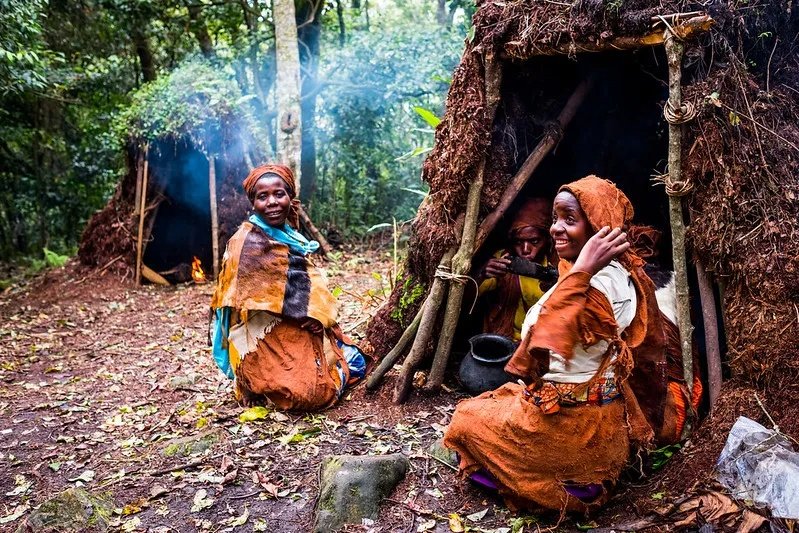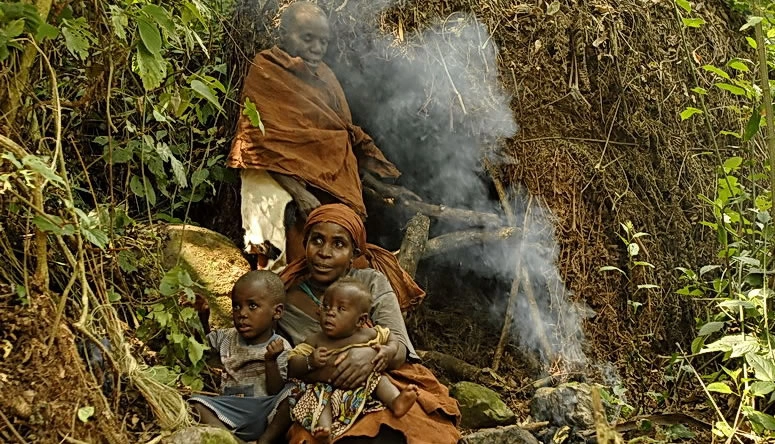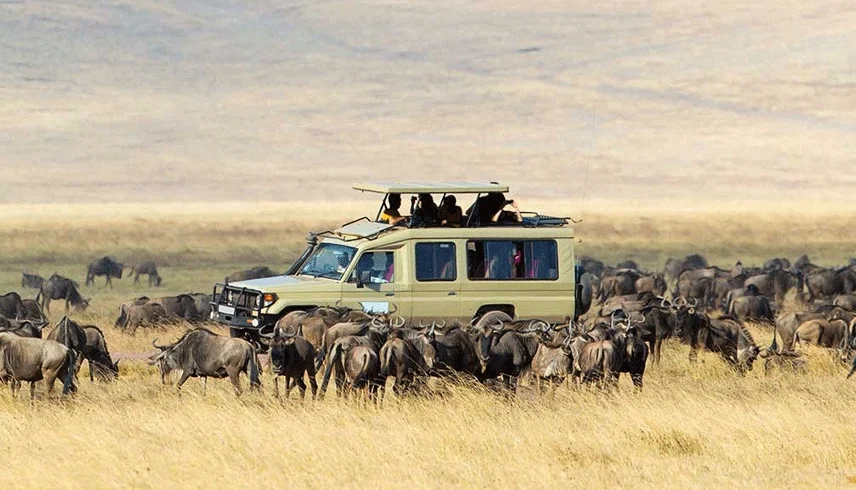Batwa Communities in Kigezi Region
Batwa Communities in Kigezi. The Batwa, also known as the Twa, are an Indigenous people who historically inhabited the dense forests of the Kigezi region in southwestern Uganda. These communities are part of the larger group of Central African Forest Peoples who have traditionally relied on forest resources for survival. In Kigezi, the Batwa are deeply rooted in the region’s history and ecology, having lived as hunter-gatherers for generations. However, their lives were dramatically altered in 1991 when they were evicted from their ancestral lands to pave the way for the conservation of national parks, including Bwindi Impenetrable National Park and Mgahinga Gorilla National Park.
Historical Connection to the Forest
The Batwa were the original inhabitants of the Kigezi region’s forests, where they thrived as hunter-gatherers. Their intimate knowledge of the forest allowed them to sustain themselves through hunting small game, gathering fruits, medicinal plants, and honey. The forest was not only their source of livelihood but also central to their cultural identity, spirituality, and social structure. Traditional practices, songs, and rituals reflected their deep respect for nature and reinforced their connection to the land.
For centuries, the Batwa coexisted harmoniously with the forest ecosystem. However, their way of life began to face external pressures with the arrival of agricultural communities and the introduction of modern conservation policies.
Eviction and Displacement
In 1991, the Ugandan government, supported by international conservation organizations, declared Bwindi and Mgahinga forests as protected national parks to conserve biodiversity, particularly the endangered mountain gorillas. This move was lauded globally for its ecological benefits, but it came at a significant cost to the Batwa. They were evicted from their ancestral lands without prior consultation or adequate compensation.
The Batwa’s displacement was devastating. No longer able to access the forests, they lost their primary source of food, shelter, and cultural identity. Stripped of their land, the Batwa became landless and destitute, forced to live on the fringes of society. Many began working as laborers for neighboring agricultural communities or depending on handouts, as they lacked the skills and resources to adapt to a new way of life.

Social and Economic Challenges
Today, the Batwa in the Kigezi region face numerous challenges that stem from their eviction and marginalization:
- Poverty and Landlessness
The Batwa are one of the most impoverished communities in Uganda. Without access to land, they struggle to meet basic needs such as food, shelter, and education. Most Batwa families live in makeshift homes on small plots of land provided by charities or sympathetic neighbors, but these arrangements are often precarious. - Discrimination and Marginalization
The Batwa are frequently discriminated against by neighboring communities, who view them as inferior or backward. This social exclusion further limits their opportunities to improve their living conditions or integrate into mainstream society. - Loss of Cultural Identity
The forced transition from forest dwellers to subsistence laborers has disrupted the Batwa’s traditional way of life. Many of their cultural practices, rituals, and knowledge systems are at risk of being lost as younger generations grow up disconnected from the forest. - Limited Access to Education and Healthcare
Educational attainment among the Batwa remains low due to poverty and systemic discrimination. Health outcomes are similarly poor, as they often lack access to quality healthcare services and face high rates of malnutrition and preventable diseases.
Conservation and Its Impact on the Batwa
The conservation of Bwindi and Mgahinga forests has undoubtedly contributed to the protection of endangered species and the promotion of eco-tourism, which generates significant revenue for Uganda. However, the exclusion of the Batwa from these benefits highlights the need for more inclusive conservation models. Despite their historical role as stewards of the forest, the Batwa were not consulted during the establishment of the national parks and have largely been excluded from park management and decision-making processes.
Initiatives such as the Mgahinga and Bwindi Conservation Trust, funded by the World Bank, have aimed to address some of these issues by supporting community development projects. However, the Batwa have often been left out of these programs, as their landlessness and marginalized status make it difficult for them to meet the eligibility criteria.
Efforts to Support the Batwa
In recent years, various organizations and advocacy groups have worked to support the Batwa in reclaiming their rights and improving their living conditions. Efforts include:
- Land Resettlement Programs: Some organizations have purchased land for the Batwa to help them establish permanent settlements and grow their own food.
- Cultural Preservation: Initiatives to document and promote Batwa culture aim to preserve their heritage and raise awareness about their plight.
- Education and Skills Training: Programs that provide education and vocational training are helping younger Batwa generations gain the skills needed to improve their livelihoods.
- Community Tourism: Cultural tourism projects, such as the Batwa Trail Experience, allow visitors to learn about Batwa history and culture while providing the community with income.
Combining Batwa Experience with Gorilla Trekking in Mgahinga National Park
A visit to Mgahinga Gorilla National Park offers a unique opportunity to combine gorilla trekking with the Batwa Cultural Experience, creating a well-rounded adventure blending wildlife and cultural immersion.
Gorilla Trekking
Gorilla trekking in Mgahinga involves tracking one of Uganda’s mountain gorilla families, particularly the Nyakagezi group. The trek can take 2–6 hours, depending on the gorillas’ movement. Once found, visitors spend one hour observing these gentle giants in their natural habitat, capturing unforgettable memories. A gorilla trekking permit costs $800 per person for foreign non-residents.
Batwa Cultural Experience
After gorilla trekking, visitors can embark on the Batwa Trail Experience, which showcases the indigenous Batwa pygmies’ way of life. The Batwa were the original forest dwellers of Mgahinga before it became a national park. Led by Batwa guides, visitors explore ancient caves, traditional hunting techniques, and medicinal plant use, culminating at the sacred Garama Cave, where Batwa perform songs and dances. This experience costs $80 per person.
How much is Batwa Cultural Experience in Mgahinga National Park
The Batwa Cultural Experience in Mgahinga Gorilla National Park costs $80 per person in the park, and $30 outside the park.. This fee includes guided tours by Batwa elders, demonstrations of traditional skills, and a visit to Garama Cave (in the park), an important spiritual and historical site for the Batwa people.
The experience starts at the Ntebeko Visitor Center, where visitors embark on a guided trek led by Batwa guides. The tour showcases traditional hunting and gathering techniques, fire-making skills, medicinal plant use, and cultural storytelling. The highlight is the Garama Cave, where Batwa perform traditional songs and dances, offering insight into their forest-dwelling heritage.
The funds from this experience support Batwa communities, helping preserve their cultural identity while improving their livelihoods. Visitors not only learn about the Batwa’s ancient way of life but also contribute to the conservation of their heritage. This cultural experience is a meaningful and educational addition to any Mgahinga safari, complementing activities like gorilla trekking or golden monkey tracking.
A Sample of the 4 Days Safari to Mgahinga Gorilla National Park, Gorilla Trekking, Batwa Experience and Lake Mutanda Boat Cruise
This 4-day safari to Mgahinga Gorilla National Park offers an exciting blend of wildlife, culture, and scenic beauty. The adventure includes gorilla trekking, the Batwa cultural experience, and a boat cruise on Lake Mutanda, creating an unforgettable Ugandan safari.
Day 1: Arrival and Transfer to Mgahinga Gorilla National Park
Arrive in Kisoro and be transferred to your lodge in Mgahinga Gorilla National Park. The journey offers stunning views of the Virunga Mountains. After settling in, enjoy a relaxing evening in the serene surroundings of the park, with an optional evening walk to take in the beauty of the area.
Day 2: Gorilla Trekking Adventure
After an early breakfast, head to the Ntebeko Visitor Center for a briefing on gorilla trekking. Your ranger guide will lead you through the forest as you track the Nyakagezi Gorilla Group. Once located, you’ll have one hour to observe the gorillas in their natural habitat. The trek offers an intimate experience with these magnificent creatures. In the afternoon, relax and enjoy the comforts of your lodge.
Day 3: Batwa Cultural Experience and Boat Cruise at Lake Mutanda
After breakfast, embark on a Batwa Cultural Experience, where you’ll be guided by Batwa elders who will share their rich history and traditions. You will visit the Garama Cave, once used as a refuge by the Batwa people, and witness demonstrations of traditional hunting, gathering techniques, and medicinal plant use. The experience culminates in a cultural performance, where Batwa singers and dancers showcase their heritage, providing you with a deeper understanding of their connection to the forest.
In the afternoon, head to Lake Mutanda for a peaceful boat cruise. As you glide across the serene waters, enjoy panoramic views of the surrounding Virunga Mountains and small islands scattered throughout the lake. This tranquil boat ride is perfect for relaxing and reflecting on the incredible experiences of the day.
Day 4: Drive Back to Entebbe, Kampala, or Kigali
After a memorable journey in Mgahinga Gorilla National Park, enjoy breakfast and then begin your drive back to either Entebbe or Kampala (Uganda) or Kigali (Rwanda). Depending on your departure point, the drive can take between 4-6 hours, offering scenic views of the rolling hills and countryside along the way. Upon arrival, you will be dropped off at your hotel or the airport for your onward journey, concluding your unforgettable Ugandan safari adventure.












